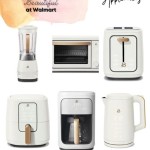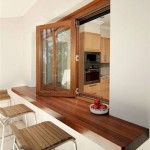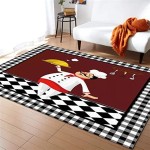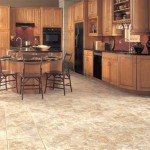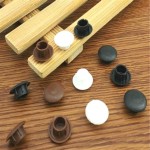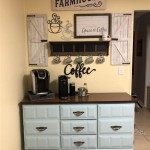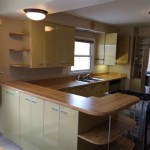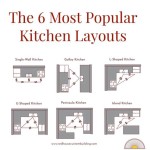Is Engineered Wood Flooring Suitable For Kitchens?
Engineered wood flooring is a versatile and popular choice for many homes, but is it suitable for kitchens? Let's explore the advantages and disadvantages to help you make an informed decision.
Advantages of Engineered Wood Flooring in Kitchens
Durability: Engineered wood flooring consists of a solid wood core topped with a real wood veneer. This construction makes it resistant to moisture, scratches, and dents, making it suitable for high-traffic areas like kitchens.
Water Resistance: Engineered wood flooring has a moisture-resistant core that prevents water from seeping through and damaging the subfloor. This feature makes it ideal for kitchens prone to spills and splashes.
Easy Maintenance: Engineered wood flooring is relatively easy to clean and maintain. Regular sweeping, vacuuming, and occasional mopping are typically sufficient to keep it looking fresh.
Aesthetics: Engineered wood flooring comes in a wide variety of colors, textures, and styles to match any kitchen décor. It adds warmth and elegance to the space.
Disadvantages of Engineered Wood Flooring in Kitchens
Susceptibility to Moisture: While engineered wood flooring is water-resistant, prolonged exposure to excess moisture can still damage it. It's essential to clean up spills promptly and avoid standing water on the floor.
Potential for Scratches: Although durable, engineered wood flooring can still scratch if dragged by sharp objects or furniture. Proper care and precautions are necessary to avoid damage.
Limited Refinishing Options: Unlike solid wood flooring, engineered wood flooring has a limited number of times it can be refinished. This depends on the thickness of the wear layer, which typically ranges from 0.6mm to 6mm.
Additional Considerations
When considering engineered wood flooring for kitchens, consider the following factors:
- Installation: Engineered wood flooring can be installed as a floating floor, stapled down, or glued. Floating floors are easier to install and can be completed in a weekend.
- Underlayment: A vapor barrier underlayment is essential to protect the flooring from moisture rising from the subfloor.
- Finish: Choose a finish that is resistant to moisture, staining, and wear. Manufacturers typically provide warranties for the durability of the finish.
Conclusion
Engineered wood flooring can be a suitable choice for kitchens if you consider its advantages and disadvantages carefully. Its durability, water resistance, and easy maintenance make it a practical option. However, its susceptibility to moisture and limited refinishing possibilities should be taken into account. With proper care and maintenance, engineered wood flooring can add beauty and functionality to your kitchen for years to come.

Can You Use Engineered Wood Flooring In The Kitchen And Beyond Blog

Are Wood Floors Suitable For Kitchens Real Vs Engineered Flooring

Kitchen Wood Flooring Is It Suitable

Wood Kitchen Flooring Is Suitable For Kitchens The Experts Explain Homes Gardens

How To Install Engineered Wood Flooring Into Kitchens The Group

Hardwood Flooring In Kitchens Canadia

Hardwood Flooring In The Kitchen

Wood Flooring Or Luxury Vinyl Tiles Lvt For Your Kitchen Dwf Blog Direct

How Practical Are Wood Floors In The Kitchen Esb Flooring

Wood Flooring Or Luxury Vinyl Tiles Lvt For Your Kitchen Dwf Blog Direct
Related Posts

